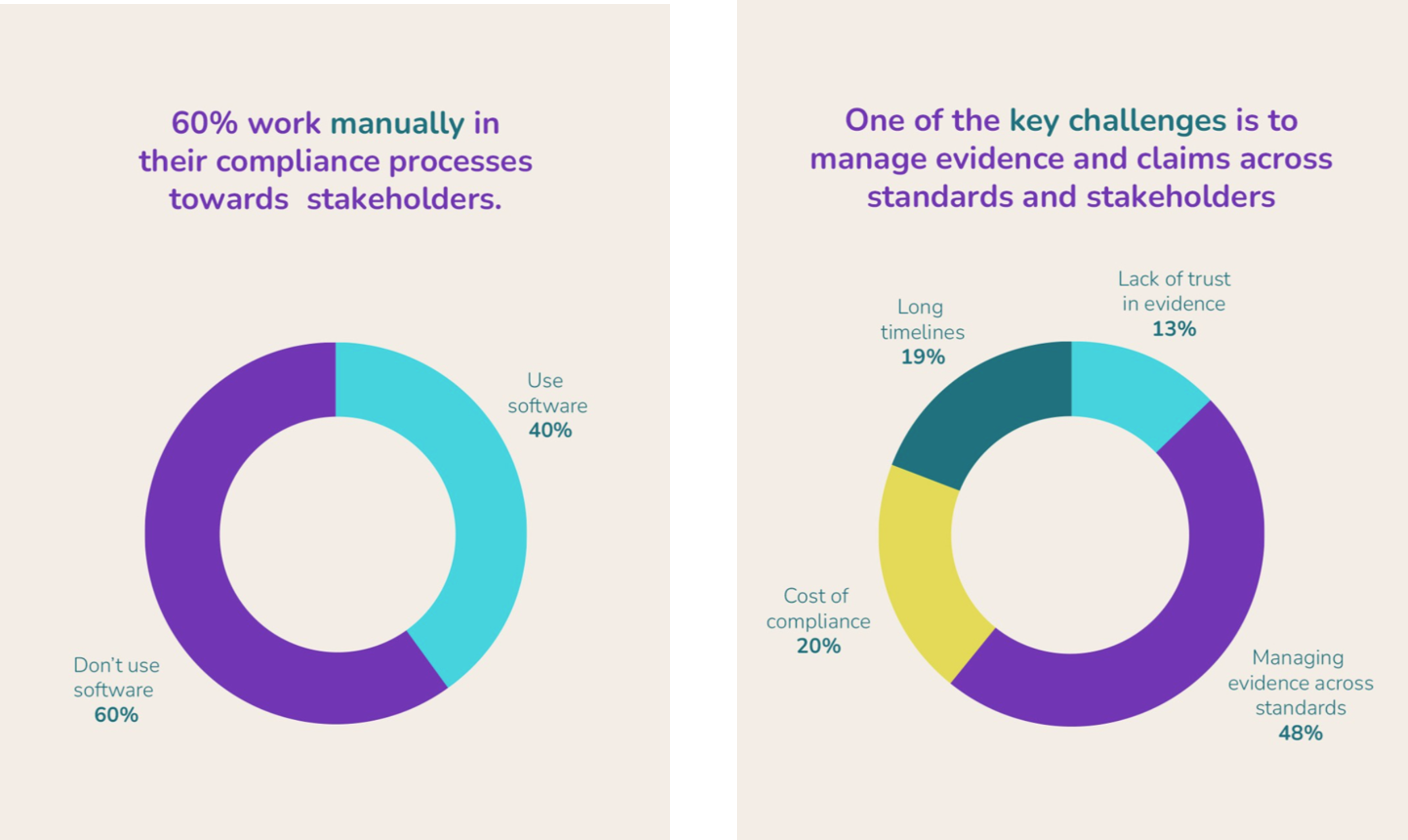2024 Regulatory Compliance predictions
AI is transforming the industry
Deciding where to focus efforts in 2024 poses a challenge for every Compliance Leader. In the growing jungle of laws and regulations, companies in the EU could be required to dig into how they impact human rights and the environment next year. This will put pressure on every compliance team, especially the ones in charge of supply chains and third-party risk.
In the new year we will be witnessing the expanded role of artificial intelligence powered solutions in companies’ value creation. AI will help us, creating efficiencies that were previously not possible.
In 2024 four key trends are shaping the industry:

CEO Jørgen Kadal has over 30 years of experience working with compliance.
1. AI will enhance and augment, not replace
Generative AI, that can analyze and interpret complex regulatory and policy documents, will complement, rather than replace, a comprehensive compliance strategy. Regulatory compliance represents a challenging combination of sophisticated enterprise computing capabilities coupled to manual data collection, reporting, and assessment.
In the coming year we will see robust industry-specific AI capabilities deployed within purpose-built enterprise software platforms along with powerful enterprise software capabilities.
The enterprise software field is moving into a new era fueled by AI. Simultaneously, we’re witnessing the rise of new software categories. These categories handle intricate real-time data analysis and large-scale machine-driven data interpretation
2. AI will focus on time savings and improved accuracy
AI-based compliance solutions will initially address improving data quality: Duplication of data, manual entry of data and communications of status – the top sources of errors, and where significant time is spent managing compliance.
In ComplAi’s questionnaire that was sent out to 13 000 DNV customers, we found that 60 percent work manually in their compliance processes towards stakeholders. And one of the key challenges is to manage evidence across standards and stakeholders.
The business implication is clear, companies using AI compliance solutions will be much more efficient and productive than those that are not.

3. AI is essential to address the growing regulatory landscape
As we enter 2024, a new wave of regulations will increase companies’ responsibilities, obligations and dramatically raise data collection requirements.
We see this happening right now with the deforestation act (EUDR) where companies are required to conduct extensive diligence on their value chain to ensure finished goods do not contain ingredients from deforestation-derived sources.
Companies will also face increased scrutiny on reporting to customers and stakeholders who will expect near real-time accuracy.
This increases the need for a robust platform that can give visibility and control of compliance across multiple regulations and the supply chain. There simply will not be personnel to manage the breadth and depth of regulatory oversight.
4. Specialized AI Copilots will speed analysis, identify and resolve risk
With Chat GPT4 the industry learned that asking is faster than skimming documents, with AI rapidly enabling risk identification, and quantifying remediation methods.
The regulatory industry will see the introduction of compliance Copilots, which will bring efficient preparation of answers and claims, substantiated with evidence from hundreds of documents. It will also efficiently answer questions about the evidence from auditors and due diligence consultants.
The business implication is that purpose-built Copilots designed to address specific business challenges, coupled with powerful enterprise LLMs (large language models) can provide insight, value, and efficacy giving a competitive advantage to companies who adopt their usage.